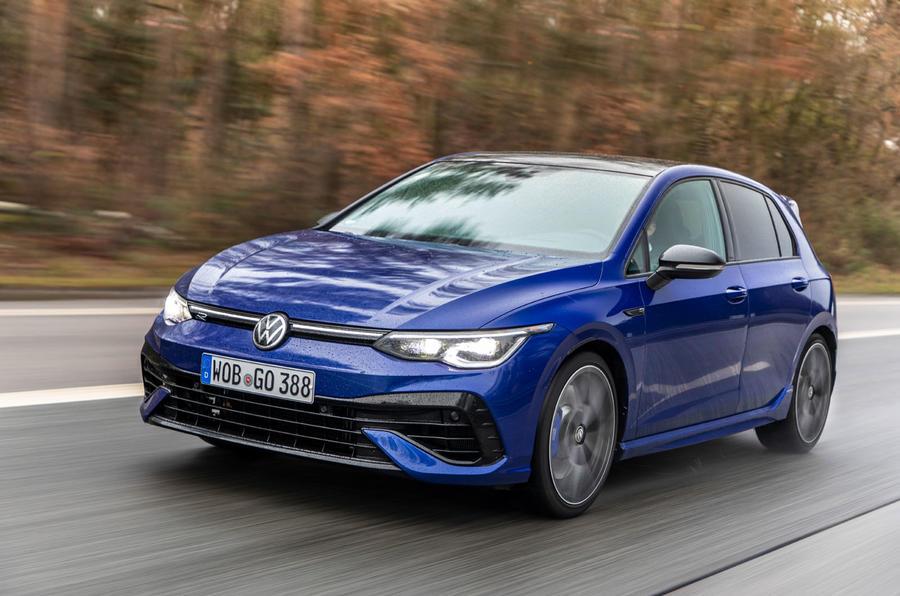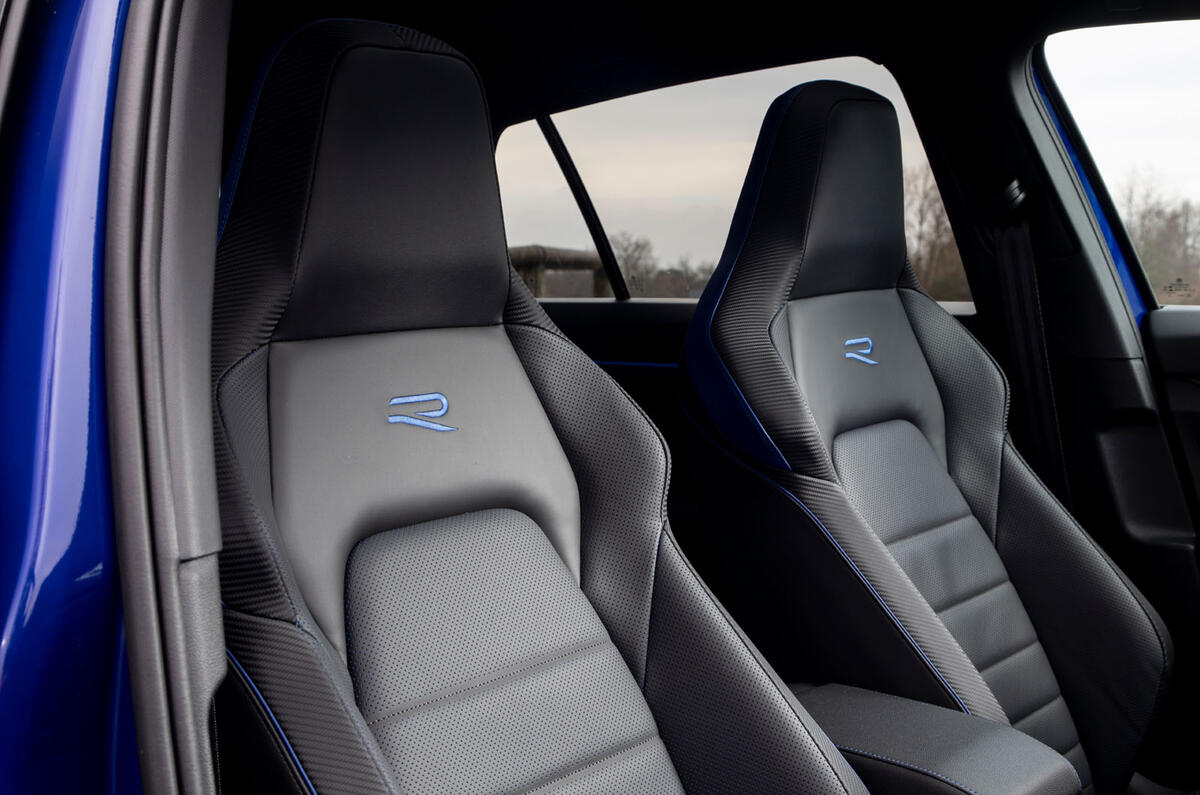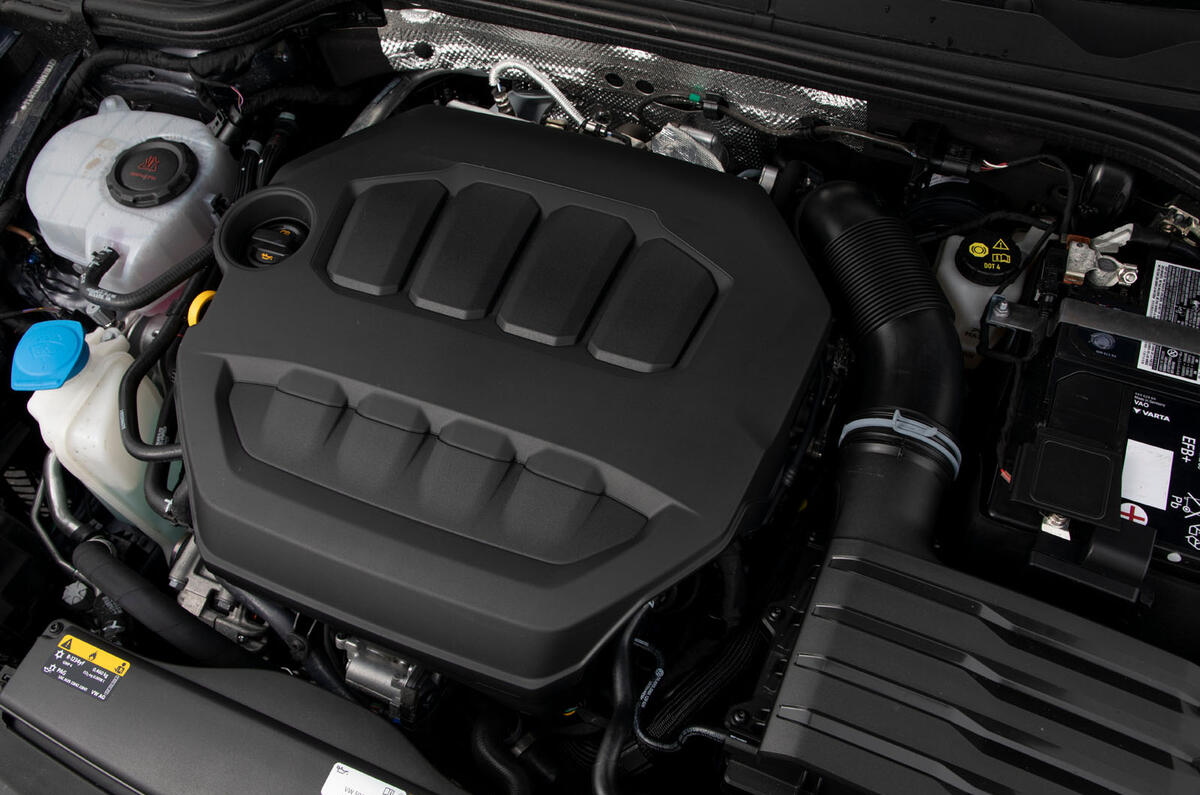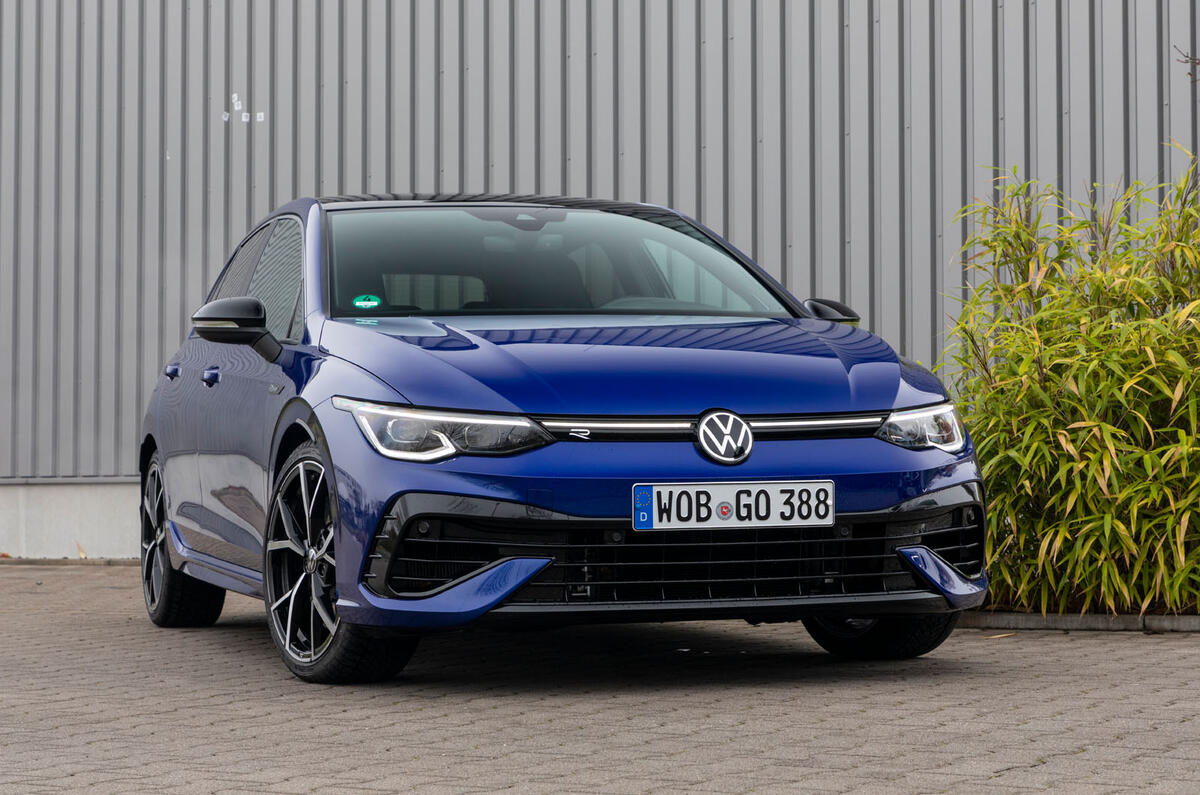What is it?
We’re living in a period of peak mega-hatch. Truly, never before has there been such a wide choice of high-powered, performance-orientated hatchbacks from so many different manufacturers. Even the Toyota Yaris is getting in on the act.
But while buyers are spoilt for choice, the task of creating an outstanding mega-hatch that truly stands out has become an increasingly difficult task – not least in the premium ranks.
Volkswagen has a long history here, starting with the front-driven Golf GTI in 1976. It wasn’t until 2002, however, that it decided to add four-wheel drive to its hot-hatch mix with the first-generation Golf R32, creating an even more serious car.
The car driven here is the fifth Golf to wear the (recently restylised) R badge. Although not since 2009 has the R been powered by six cylinders, the new model continues an 18-year tradition of four-wheel drive in Wolfsburg’s flagship hatchback. And with the changes brought to the Haldex multi-plate clutch system for the new model, it is now more sophisticated and arguably more effective than ever before.
But first, the engine. The R uses the fourth generation version of Volkswagen’s EA888 unit. This is essentially the same unit brought to the new Golf GTI Clubsport, but with an added 19bhp and 15lb ft. Power peaks at 315bhp with torque extending to 310lb ft on a band of revs between 2100 and 5350rpm, making this the most powerful series-production Volkswagen Golf.
By comparison, the old Golf R made 296bhp and 280lb ft, so this is more than just a token increase in reserves, particularly torque. Drive, meanwhile, is sent through an updated version of Volkswagen’s in-house seven-speed dual-clutch gearbox (DSG), which uses an upgraded auxiliary oil cooler and new software mapping for faster shift times. There is no manual gearbox option – Volkswagen says there isn’t sufficient interest.
As before, there is an optional Akrapovic titanium exhaust system. It doesn’t liberate any more power from the 2.0-litre engine, but it does save 7kg and gives the new model a stirring exhaust note in any one of its more sporting driving modes.
Underneath, there’s a reworked MacPherson strut (front) and four-link (rear) suspension. The R then rides 20mm lower than the regular Golf, and gets Volkswagen’s excellent DCC (Dynamic Chassis Control) with variable rate dampers and an additional 1.3 degrees of negative camber to the front wheels.
The standard wheels, unique in their design specific, are 18in in diameter, though our test wears optional 20-inch wheels with winter tyres.
Other changes? There’s a quicker variable-ratio steering rack attached to the same upgraded front subframe as the Golf GTI, and also larger front brakes with new two-pot calipers. The brakes also use a new master cylinder and, despite being larger than before, are also 600g lighter at each corner.
It’s the four-wheel-drive system, though, that really deserves a closer look. Produced by BorgWarner, it has been re-engineered with the addition of a new central differential that provides a faster and more rear-biased apportioning of drive. There’s also a new electronic rear differential among other myriad changes, bringing torque-vectoring qualities to the rear axle for the first time.






































Join the debate
Add your comment
An alternative review on this site given only 4 stars and essentially highlighting the same short comings as some rivals which the press is hell bent on just slagging off.
£ 39 K starting price ? So that's straight into the highest VED bracket years 2-6 onwards at £ 475.00 - just to keep it on the road before turning a wheel. I trust everyone's going to PCH this and hopefully forget their financing very high VED at a nice fat APR margin for the leasing company.....
What's the point of criticising the cars performance shortfall against VW claims, (a whole 0.2 sec in 0-62 sprint) when it is being tested on winter tyres?
Also, on winter tyres, ride/handling will inevitably be affected compared to grippy, stiffer sidewalled summer tyres.
I think this Golf R will be a great hot hatch/family car and can't wait to be able to order one, Brexit notwithstanding.